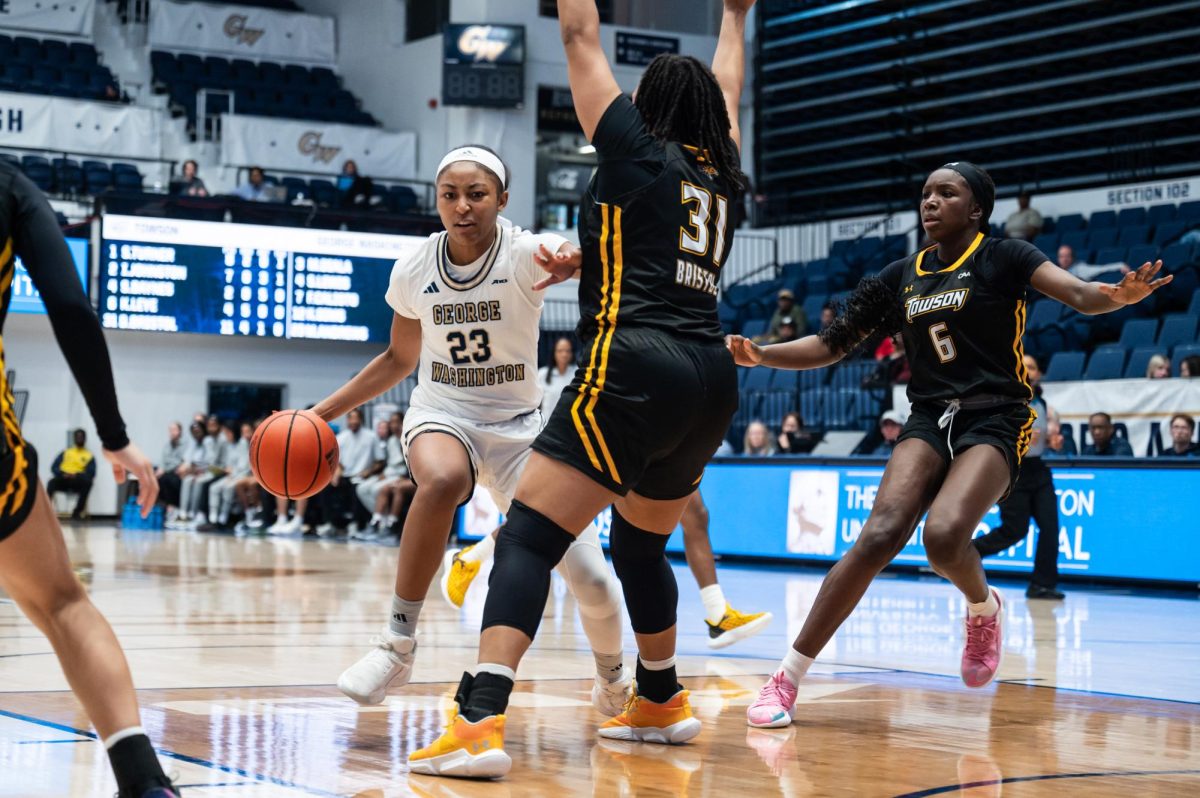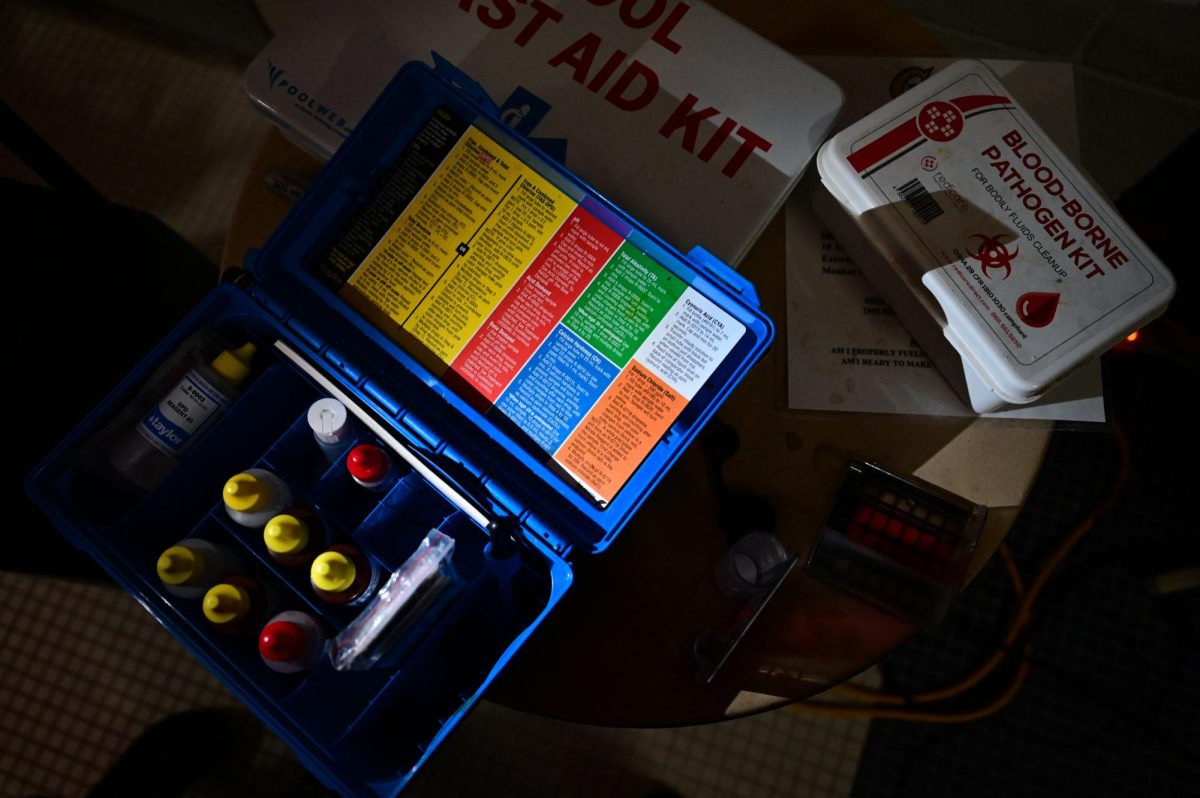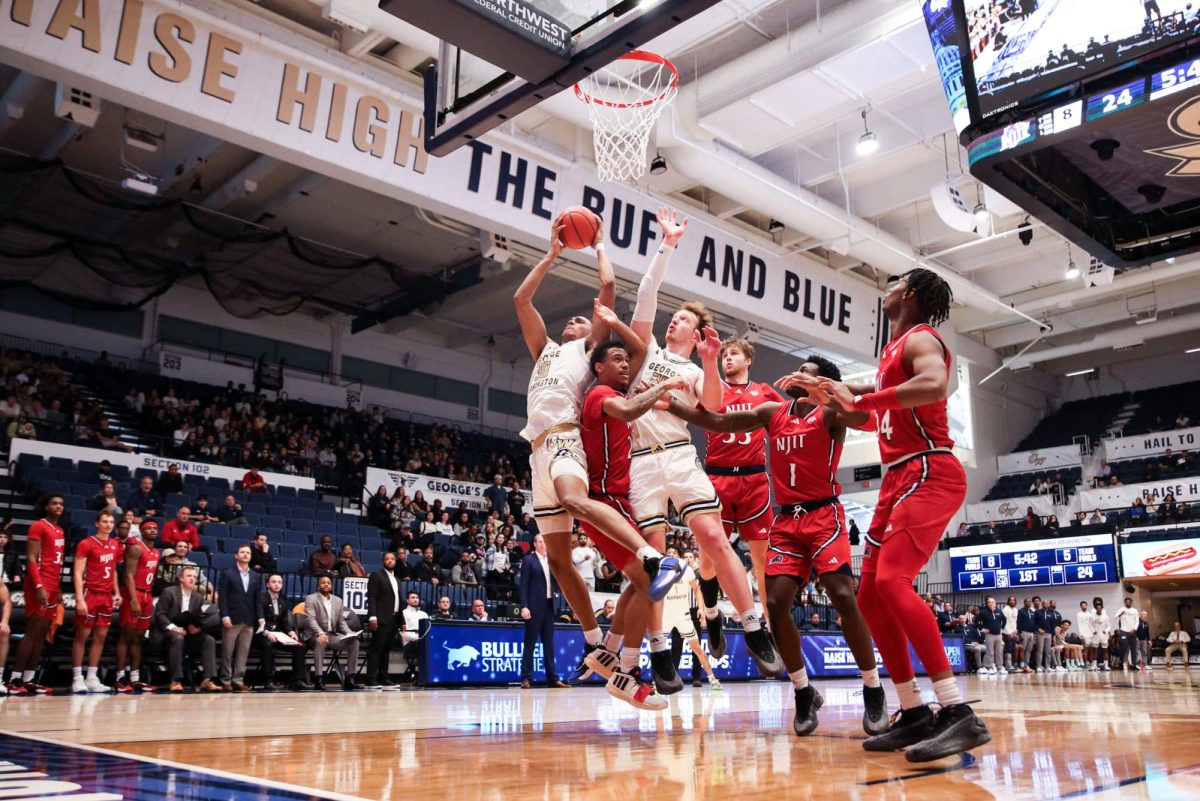Minutes before the start of a recent GW basketball game, an elderly man makes his way to his seat at the Smith Center. He walks slowly with a cane, wearing a gray sweater, slacks and a dark blue U.S. Navy cap – a wardrobe that does little to distinguish him from the older fans sitting around him in the alumni section. In fact, if it weren’t for the cigar that seems permanently fixed in his mouth, there would be no hint that he is one of the most celebrated coaches in the history of American sports.
Arnold “Red” Auerbach (’40) played basketball at GW from 1937 to 1940 and went on to win nine championships as an NBA head coach for the Boston Celtics, including eight in a row. In 1980, he was named the greatest coach in the history of the NBA as well as the league’s Executive of the Year for his work in the Celtics’ front office. But sitting in his seat on the aisle about 10 rows up from center court, Auerbach is just an observer.
“It’s my alma mater,” he said. “That in itself is enough (for me to come back). I always felt that they were very good to me. I got a couple degrees – actually three degrees-from GW. And this is just my way of saying thanks.”
Auerbach’s relationship with the University begins with Director of Athletics Jack Kvancz, who has known the coach since Kvancz played for Bob Cousy at Boston College. Cousy had a Hall of Fame career playing for the Celtics under Auerbach.
“We used to get into the Boston Garden when I played for a buck,” Kvancz said. “And that’s when I first met him, through coach Cousy. But I think Bob Chernak (GW Senior Vice President for Student and Academic Support Services) did a great job with Red when he got here (in 1988), bringing him back into the program to some extent.”
At 86 years old, Auerbach remains the president of the Celtics but lives here in the District on Massachusetts Avenue. He works primarily out of his office on New Mexico Avenue, and his proximity to Foggy Bottom allows him to stay in close contact with GW basketball – not only with Kvancz but also with men’s coach Karl Hobbs and women’s coach Joe McKeown.
“Coach has been a mentor to me since I got here in 1989,” McKeown said. “He’s the reason I’m still here. I was going to take the job as the head coach of the New York Liberty in the WNBA (in 1997), and he talked me out of it.”
Such advice, along with food and conversation, is available every Tuesday at 10:45 a.m. in Chinatown, where Auerbach, Kvancz and about 20 others have lunch. Hobbs and McKeown attend every so often, joining an eclectic group of regulars that includes noted author and Washington Post columnist John Feinstein, legendary local high school coach Morgan Wootten and friends of Auerbach’s from the FBI.
Hobbs, a Boston native, said it has been so thrilling for him to have known Auerbach in his three years at GW that his own father still doesn’t believe the two have lunch sometimes. But for Hobbs, Auerbach’s encouragement has been just as valuable as his advice.
“Last Tuesday, before the Temple game, we were going out to lunch, and we had just been though a tough stretch, losing four straight,” Hobbs said. “And the first thing he said when I got in the car is, ‘Coach, you’re doing a great job.’ For him to say that, you have no idea what it meant to me. No one needs to hear what a great job you’re doing when you win four straight.”
Auerbach said it gives him a good feeling to mentor other coaches like Hobbs and McKeown but stressed that he only offers advice when asked.
“There is nothing worse than an older guy giving advice,” he said. “Then he’s a meddling old fool. If they ask me something, I’ll give them my opinion. But I never volunteer or tell them what to do.”
Watching the game from his seat, Auerbach still seems to have plenty of opinions. Rather than clapping and cheering, he points at things and analyzes the game, thinking to himself or talking to his daughter and son-in-law, who often sit next to him.
“He watches the game and thinks, ‘I would do this’ or ‘I would do that,'” Kvancz said. “But he’s not one of those people who tells you that. He tells himself.”
And because fans in the arena generally leave him alone, Auerbach can do this without being bothered by anyone asking for autographs or opinions. In fact, the banners with his face on them that hang above the court and the plaque dedicated to him outside the building are more noticeable than the man himself.
“Everybody seems, either by trying at one point in time (and failing) or just out of respect … they don’t talk to him,” Kvancz said. “People have tried, but now they know.”
Auerbach misses some games when he feels sick. At 86, there are good days and bad days. But what becomes evident in talking to him is that his basketball mind has hardly aged at all.
At halftime of the game, in which GW is trailing Temple 34-29, Auerbach chews his cigar (he’s not sure which brand it is – it was given to him by another fan – he prefers Hoya de Monterrey), looks up at the scoreboard and shrugs his shoulders.
“You can’t make them shoot. That’s where it’s at,” he says. “But the way Temple plays, they practically concede the three-point shot. If you hit ’em, you’ll beat ’em. If you don’t hit ’em, you won’t beat ’em. Then they hold the ball, they don’t break, so you gotta play your defense on the other end. That’s about it.”
His analysis holds true. The Colonials come out in the second half, “hit ’em” and eventually “beat ’em.” But Auerbach takes no visible pleasure in being right. As the final buzzer sounds, the coach simply gets up and walks away, disappearing into a sea of fans heading for the exits and leaving as inconspicuously as he arrived.






